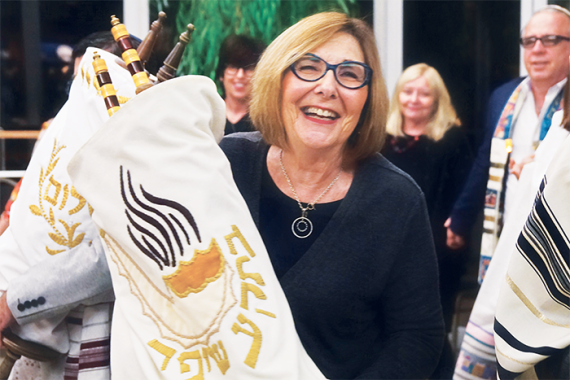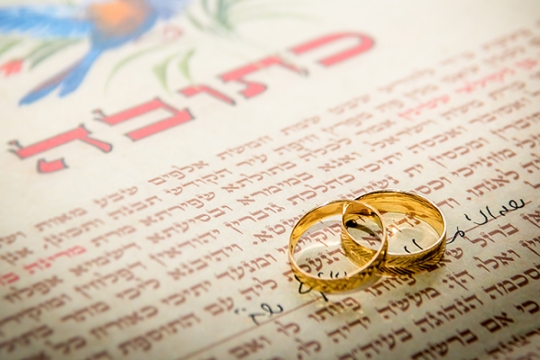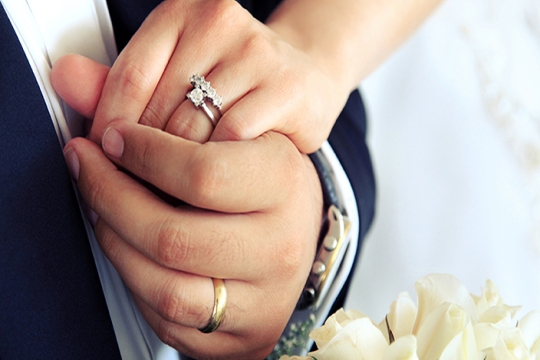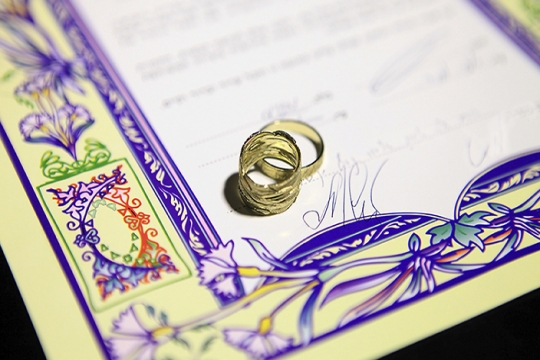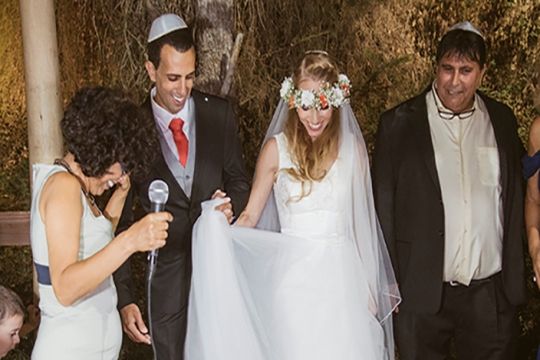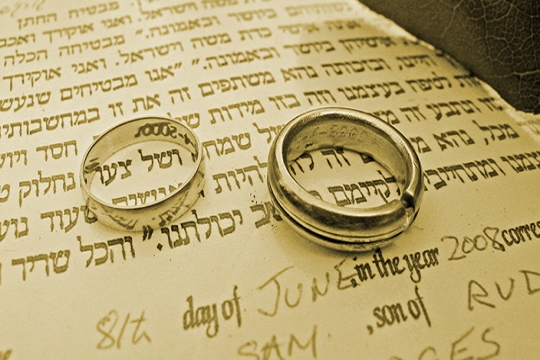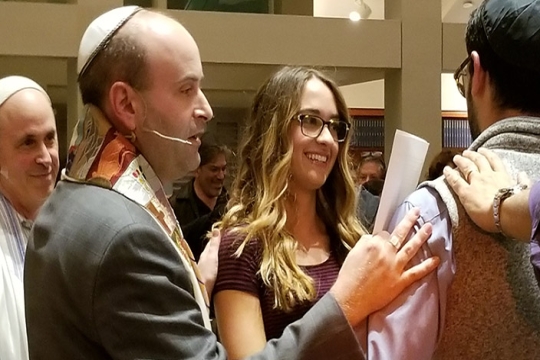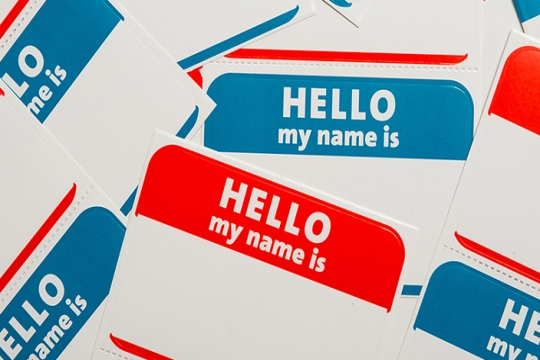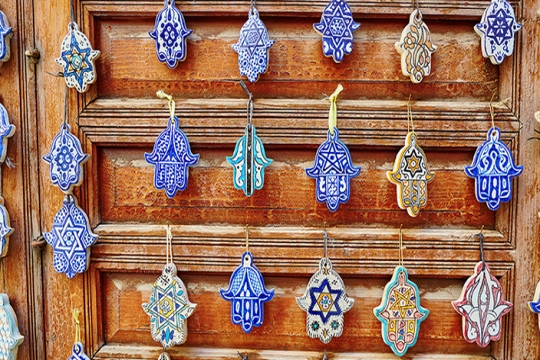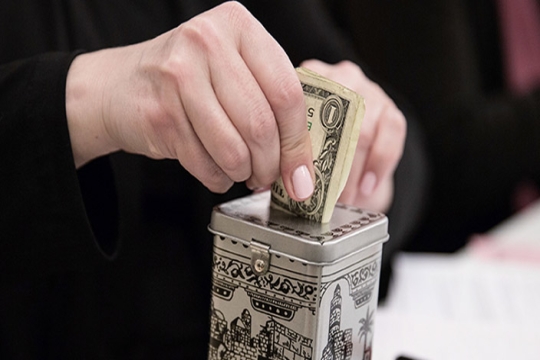I was invited to celebrate a bar mitzvah for an 83-year-old. Where does this tradition come from?
It's never too late for a Jewish person to celebrate becoming bar, bat, or bet mitzvah! Many Jews celebrate as adults, if they didn't have the opportunity to celebrate when they were 13.
What’s the Hebrew word for the wedding ceremony?
Kiddushin, the Hebrew word for the Jewish wedding ritual, means “holiness.” The word has the same linguistic root as kadosh, meaning “holy.”
Who can sign our ketubah? How should we pick our witnesses?
Who can sign our wedding ketubah (Jewish marriage contract)? How should we pick our witnesses?In Reform Judaism, witnesses may be of any gender, above b’nei mitzvah age (13 or older), and customarily, identify as Jewish, although some clergy permit individuals from other backgrounds and faiths to serve as ketubah witnesses. Some clergy also will allow additional witnesses, so you can honor three or even four friends as witnesses.
Does my wedding ring have to be plain gold or can it be a diamond band instead?
If you have a wedding ring in mind that you’d like to use in lieu of a solid gold or silver band, you should speak with your officiant about choosing the type of ring (or rings) that best suit you, your relationship, and your custom.
I was asked to be a ketubah witness at my friend’s wedding. What do I need to know?
The wedding partners honor two friends by asking them to sign the document as witnesses. Usually, the witnesses are expected to sign their names in Hebrew. If you aren’t sure how to do that, ask the wedding couple for guidance and they can speak with their clergy about how to make that work.
Should we invite our officiating rabbi or cantor – along with a partner or spouse – to our wedding reception?
Your officiating rabbi or cantor – along with a partner or guest – will certainly appreciate an invitation to your reception. It’s a thoughtful gesture on your part, and some consider it proper etiquette.
What if my ketubah witnesses don’t know how to sign their names in Hebrew?
If your witnesses aren’t comfortable writing in Hebrew, consult your officiating rabbi or cantor for their practices and preferences
What is an appropriate honorarium for the rabbi or cantor who performs our wedding?
Wedding honoraria vary widely by geography and circumstance, so it’s not possible to give a definitive answer.
How Are Hebrew Names Formatted?
We talk about the customary format for Jewish or Hebrew names, plus options for individuals who do not use gendered designations.
What is a Hamsa? Is it a Jewish Symbol, a Middle Eastern Symbol, or Something Else?
The hamsa is a palm-shaped symbol historically used by both Jews and Muslims in Arab countries as an amulet to ward off evil forces, particularly the “evil eye.”
Why do Jews give gifts and charitable donations in multiples of 18?
What is the significance of the number 18 in Judaism?

